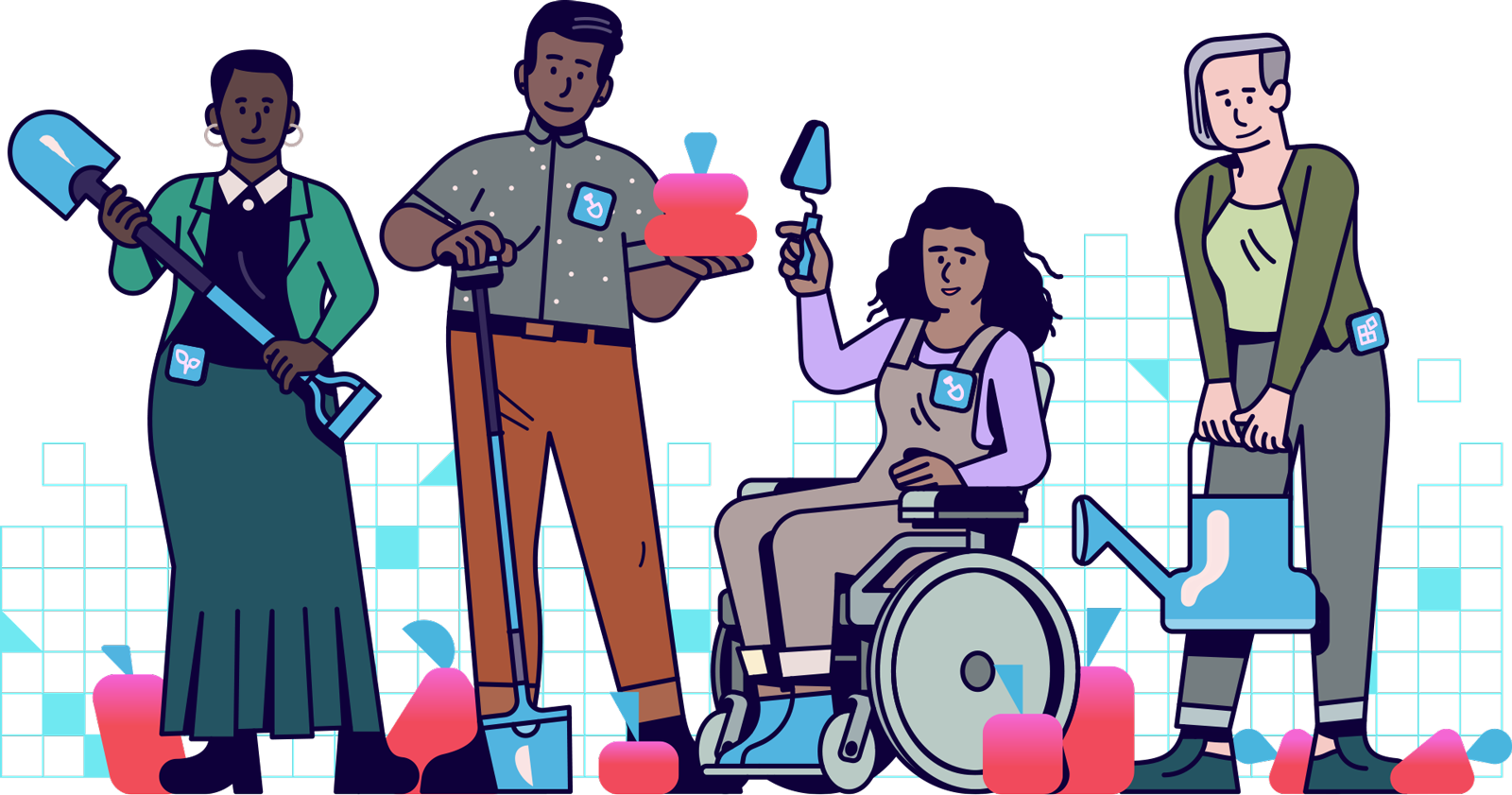
How Being Woman provided devices and training to increase digital inclusion.
Providing devices and training to increase digital inclusion
As the pandemic hit, Being Woman sprung into action to help users without internet access stay connected, assist users with little or no experience with digital devices in getting started, and provide volunteers teaching digital skills with resources to deliver workshops and support sessions effectively. In the spring of 2020, they kindly shared their approach to staff training with us via a full Service Recipe, which we have summarised below.
The challenges
Based in Northumberland, Being Woman offers women digital skills training to increase inclusion and equality. When they rolled out the services in the early weeks of the pandemic, their aims were to help users without internet access stay connected, assist users with little or no experience with digital devices in getting started, and provide volunteers teaching digital skills with resources to deliver workshops and support sessions effectively.
The Solution
Being Woman is using learning resources from Good Things Foundation’s Learn My Way (free digital resources for complete beginners) and Make It Click (free digital resources, but designed for a range of levels) to teach people about topics such as video calling, identifying online scams and working from home. During lockdown, they also distributed tablets and laptops - with integrated WiFi sims or routers - provided by the Devicesdotnow scheme to people without internet access.
They are also running English as a Second Language classes for asylum seekers over Zoom using English my Way resources.
How the solution was reached
In terms of the software and tools used, Being Woman takes queries and appointments across a range of channels, so people can reach out on the channel that best suits them, whether that is WhatsApp, Skype or Zoom.
Being Woman summarised their key learnings as below:
1. Reach out to people who may need support
Being Woman offers digital support to people who request it directly over the phone or through their website. They also take referrals from other community organisations. They are active in mutual aid groups and also partner with libraries to identify people who may need support.
2. Apply for and assign devices
Being Woman had a limited number of devices to distribute. To decide who should have them, they took into account the level of need, geographical distribution and whether there were children in the house who also needed access. There was also a preference for choosing existing clients who they were certain would be committed to getting online.
3. Deliver devices
The devices were delivered to people’s homes. Drivers were asked to take a photo of the delivery with the recipient, avoiding any personal features such as faces in the image, as a record of successful delivery.
4. Inform people about privacy and data use
Each person was sent a text message about how data on the device would be used. Consent for images and quotes to be used in case studies was also requested and collected, but only if people were comfortable with this.
5. Set up an introductory call to get people online
Regardless of whether the person had received a device or not, the online support starts with a video call over WhatsApp or Skype. This often begins as a voice call, where the person is then guided by the trainer to turn their video on. The digital skills trainer talks the person through the basics of video calling and sets them up on the Learn My Way website. They are able to offer support in several different languages.
6. Follow up video sessions
The trainers follow up with people every two weeks to check-in and offer more practical and emotional support.
7. Webinars and group calls
When people have learned the basics, they can start joining group sessions on specific topics, including English language classes for asylum seekers.
Being Woman provided the following useful guidance and links:
Emotional support and reassurance are as important as technical support for people starting their digital journey. It’s best to use platforms that are familiar to people as this helps to build confidence. Being Woman chose WhatsApp for this reason.
Through offering digital support they are able to identify other needs, for example needs around mental health, and are able to direct people to other services. Like Being Woman, have procedures in place to contact local authorities and the police if any risks are identified.
They pre-installed health and wellbeing apps on the devices they distributed: Stress and Anxiety Companion and My Possible Self from the NHS apps library, and Calm. Having these apps pre-installed means they’re readily available for people to use and removes the extra step of having to install it themselves. Pre-installed apps help with ease of access, especially if people are at the beginning of their digital journey.
Having a collaborative environment amongst various organisations is really beneficial as it allows you to easily adapt to changing situations. The charities, community organisations and council in Northumberland have been working together to share knowledge and improve processes. For example, Being Woman has been up-skilling some of their peers in working remotely so that they are better equipped to make referrals. They have been getting support and guidance from the Good Things Foundation and other mentors.
The team also reflect each week on any technical issues they faced and work through them together.
Things to watch out for
They are not able to reach people without internet access at home, and are limited in the devices they can distribute.
Find out more about Being Woman’s Learn Club.

Support & services
Our free services help you make the right decisions and find the right support to make digital happen.
.png)
Catalyst Festival of Learning
See 20+ curated posters sharing insights and handy reusable tools from charities who’ve completed a Catalyst-funded digital project.
Medium
Find more success stories and inspirational articles on our Medium blog page.


